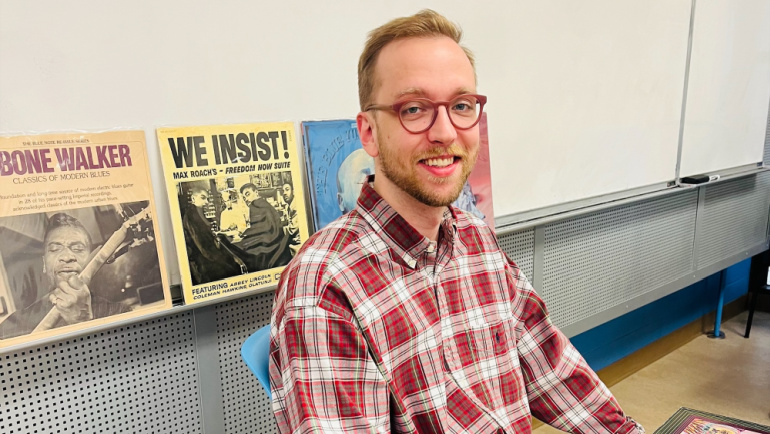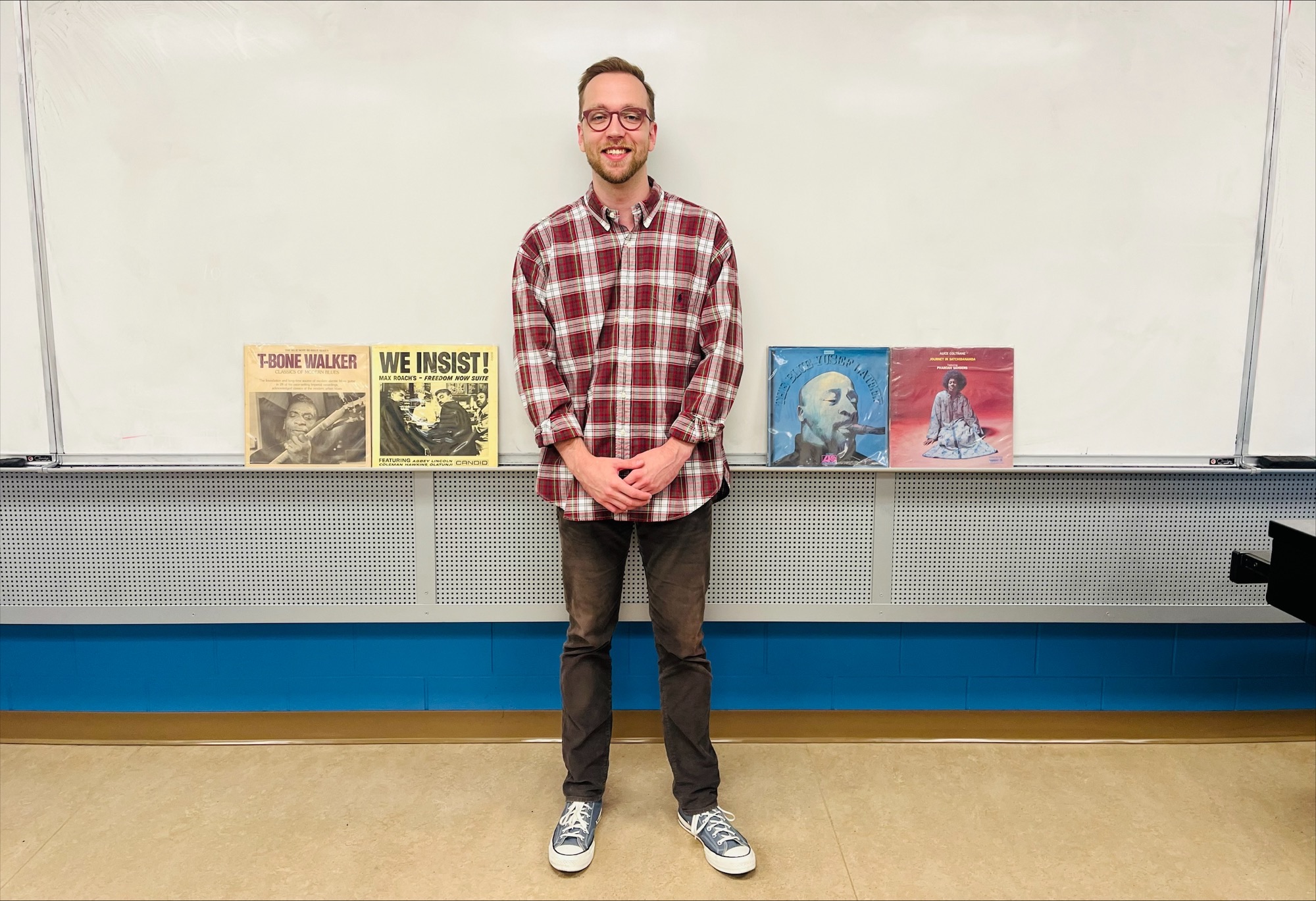
At Wayne State University, undergraduate students have learning opportunities that extend well beyond the classroom, allowing them to put knowledge “to work” in real-world settings while gaining deeper insights and new perspectives. Through the Undergraduate Research Opportunities Program (UROP), students can connect with world-class faculty mentors to conduct, publish and present research. Providing hands-on learning opportunities to all Wayne State students is part of the College to Career initiative and key to ensuring they graduate career ready.
Matthew Baube’s summer was anything but ordinary: An aspiring historian with a profound interest of jazz and blues, Baube embarked on a transformative journey — one that took him deep into the heart of New Orleans and Oxford, Mississippi. Over the span of two weeks, he dived into the archives for his project at Tulane University, exploring the rich legacies left behind by musical legends.
Baube’s project, “Crossroads: Labor, Masculinity and Blackness in the Origins of Blues & Jazz,” aims to reshape historical narratives into a symphony of discoveries. A senior from the College of Liberal Arts and Sciences, he immersed himself in New Orleans’ vibrant jazz scene, attending live performances in the French Quarter by night while spending his days at Tulane’s Hogan Jazz Archive.

“This UROP trip allowed me to gain invaluable experience conducting fieldwork at university archives, a critical skill for any history student looking to advance into graduate and Ph.D. programs,” he said.
Baube’s research involved an in-depth analysis of taped interviews and personal notes from icons such as Muddy Waters, John Lee Hooker and Sarah Vaughan.
“I examined interview transcriptions and personal effects from hundreds of musicians, which allowed me to see the person behind the performance, the human behind the history,” Baube said.
His journey also took him to the University of Mississippi’s Blues Archive to trace the deep roots of blues across the Mississippi Delta. Handling these rare and treasured materials fulfilled a dream for Baube while also providing him with firsthand insight.

Department of History Professor Kidada E. Williams, who supervised Baube’s UROP project, was eager to support Baube’s research direction.
“Matthew came to me as an AGRADE advisee, and I recommended that he apply for a UROP because I knew it would be an essential steppingstone for the research he will conduct as an M.A. student,” she said. “His interest in blues music was a bonus. He already had the sense of awe history students get about their chosen study topics.”
Williams continued, “For Matthew, it was about the history of the music: the African American artists and the communities from which they came, their musical talents, labor, the industry, and how all are remembered or forgotten. I’m a fan and know some academic scholarship on the topic, which was a bonus.”
